On Saturday, February 17 the Tudor Room at the Mermaid Inn in Rye was packed with keen foodies wanting to know more about the art of Japanese cooking, especially scallops and who better to assist them than Tim Anderson. He is a chef, writer, former restaurateur and a MasterChef champion. Born in Wisconsin, Tim has been studying Japanese food culture for more than two decades, first as a hobby, then as a profession. He was the founder of the Japanese soul food restaurant Nanban in Brixton. He is also a regular panellist on The Kitchen Cabinet on BBC Radio 4.
The talk was arranged by Rye Arts Festival (RAF) as part of the Rye Scallop Week and David Angell, a trustee of the RAF, interviewed him asking, as Tim Anderson remarked numerous times: “A good question, an interesting question and that’s a difficult question!”
David reminded the audience that it was four years ago almost to the day that Kitchen Cabinet had been recorded in Rye and Tim had been on the panel that day. Tim asked:
“Did anyone come to that?” and there were quite a few who had. The question was posed: “Who says ‘scallop’ week and who says ‘scollop’?” Scallops won the day.
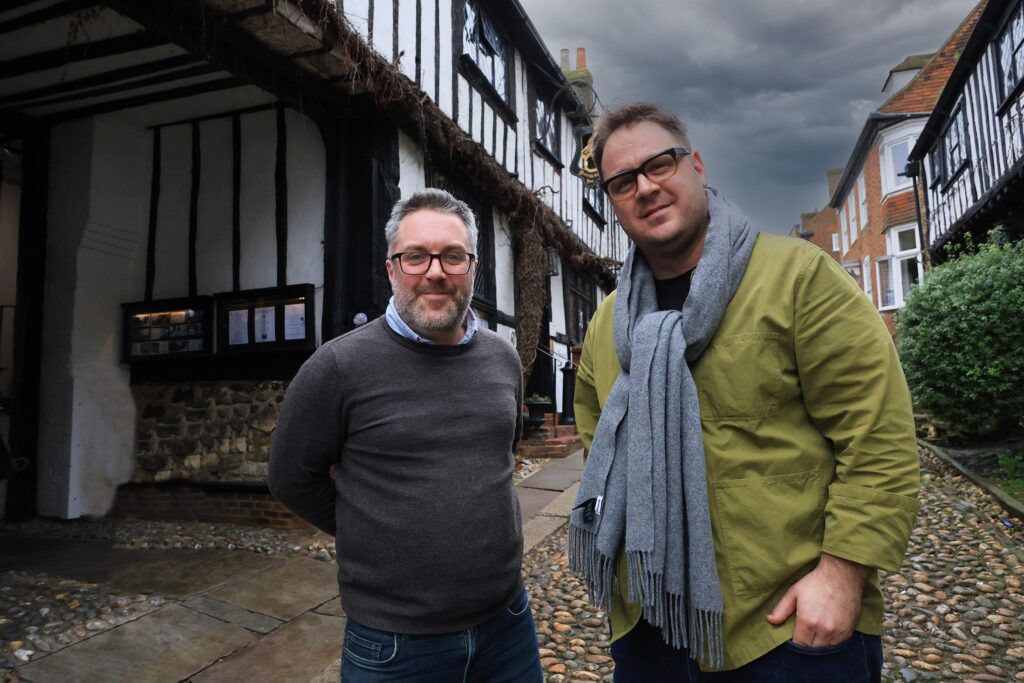
The first question from David to Tim:
What is your general approach to Japanese cuisine? What are the key go-to things when trying to learn to cook Japanese food?
“There is a lot of Japanese food that is very, very difficult just like any genre or type of cuisine. There are certainly things in Japanese food that I personally don’t touch, which I can’t do and I don’t recommend that anyone attempt them as you are bound to disappoint yourself. One of them is sushi. People think it is a classic dish and that’s what I will try first. You try to make it but you realise quickly that it is not easy to prepare the rice, it’s hard to source the fish and the technique is very difficult. Sometimes I watch great sushi chefs prepare their food and it is like watching a magician, like they are doing a card trick; it is amazing to me.
“There are simple ways of preparing Japanese food, too and that is because Japanese food inherently has a simplicity to it. There is an emphasis on simple quick cooking techniques like boiling and poaching, simmering, steaming and grilling. There is not a lot of oven cooking in Japan for most families. If you have a handle on seasoning, there is a definite balance in their cooking, of umami, salt and sugar mostly, so then you have the first stages of understanding the art. There is only a handful of useful Japanese seasonings that you should get to know: soy sauce, miso, rice vinegar, sake and mirin and just plain sugar as well.
“The important thing is how to balance them against each other and once you have mastered that it is simple. The next step is to apply them to a good piece of protein, meat or fish. It is surprisingly frustrating writing Japanese recipes as I will go to Japan and I will have something that is amazing and then if I were to write a recipe it would be basically fish and salt. It is about how you apply the seasoning, what quality the fish is and the technique used.”
Following on from that, you often bring innovative trends into your recipes, are there any trends that are coming into the UK from Japan at the moment?
“That’s an interesting question. No. What we see here in the UK is a very small representation of Japanese cuisine. One thing we have seen more recently cropping up in the UK is Japanese baking, especially milk bread, shokupan. It is delicious.”
Of course the talk then concentrated on scallops and if you can find Tim’s scallop recipe here.
Tim engaged his audience throughout his talk and then there were many interesting questions which showed what a deep desire there was to try and create more Japanese dishes at home using some of the ingredients he had discussed. I think many people left the Mermaid energised, full of confidence just to have a go, keep experimenting and find dishes that are easy to prepare but require sensitivity with seasoning.
Andy Stuart from RAF presented Tim with his own bottle of Kewpie mayonnaise. Kewpie mayo is a Japanese brand of mayonnaise known for its umami-rich, tangy-sweet flavour profile. It is made with only egg yolks, giving it an exceptionally lush, smooth texture and a deeper yellow colour. It is now being sold in the UK.
Natasha Robinson from Serenata Hospitality was in the audience and commented afterwards: “It’s quite obvious why Tim Anderson is a regular on Radio 4’s ‘The Kitchen Cabinet’. He has the comfortable delivery of someone who not only loves his subject, but also the deep knowledge and practical expertise to back up his words. His humour and straightforward style encouraged us to bring a sense of adventure into our own somewhat jaded kitchen cabinets. How have I been cooking all these years without dried scallops in my pantry?”
Image Credits: Kt bruce .



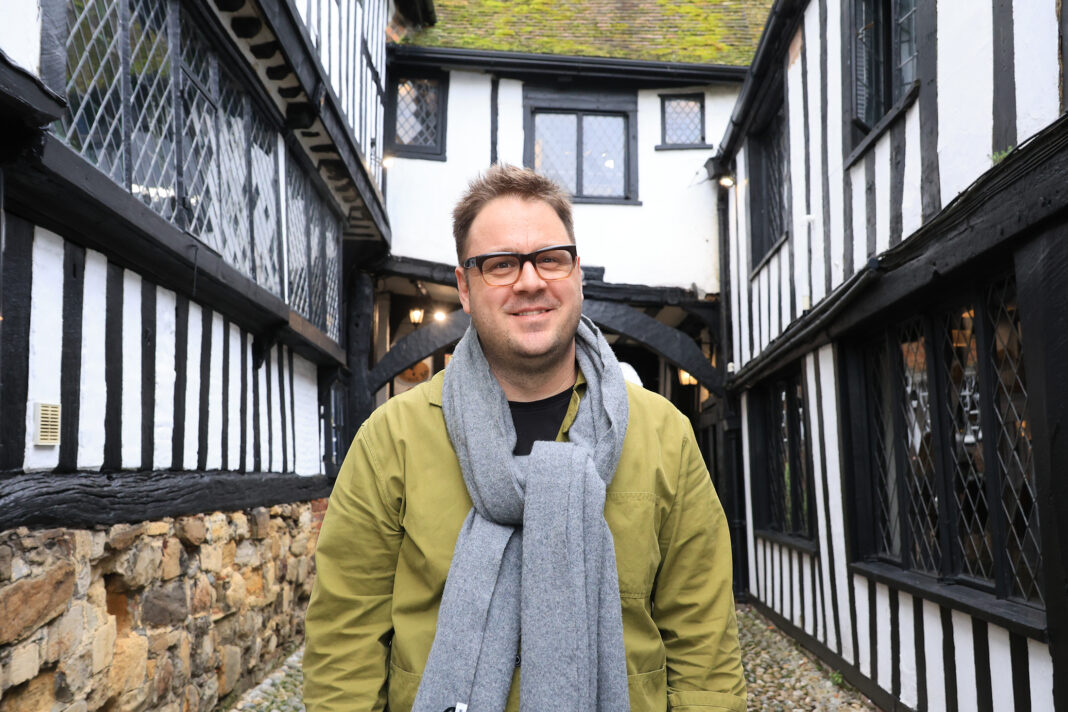

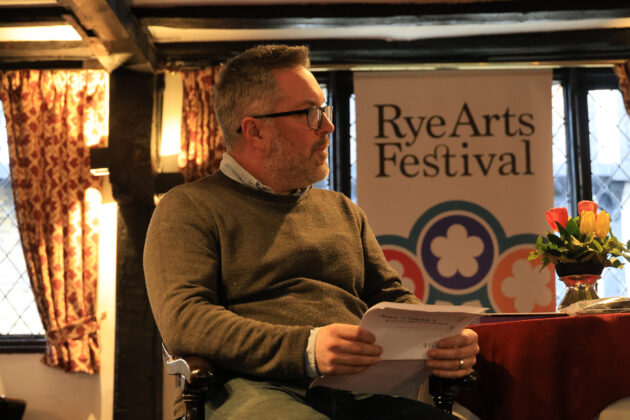
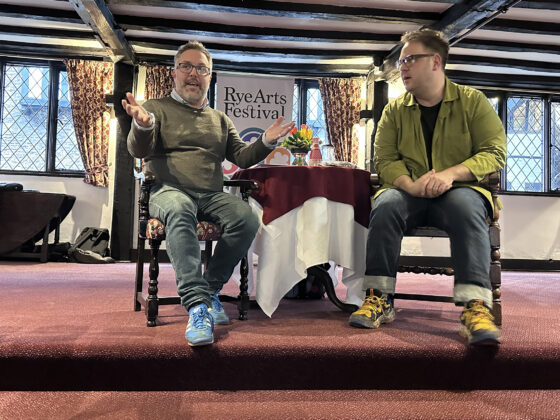
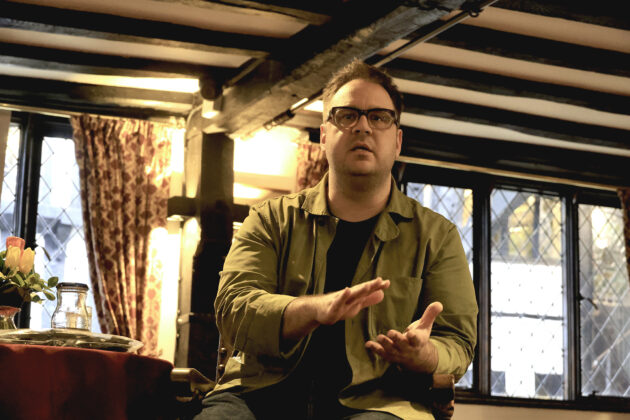
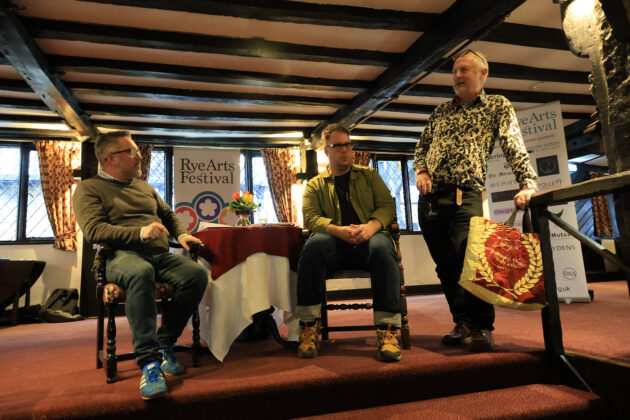
On behalf of Rye Arts Festival I would like to thank Tim for an excellent talk and an entertaining and illuminating Q & A session. Thanks too to the Mermaid for hosting the event and for opening the bar for late morning refreshments. Thanks to David Angell for organising the event and last, but far from least, big thanks also to Kt for photographing and reporting it!
The morning was a complete load of scallops!